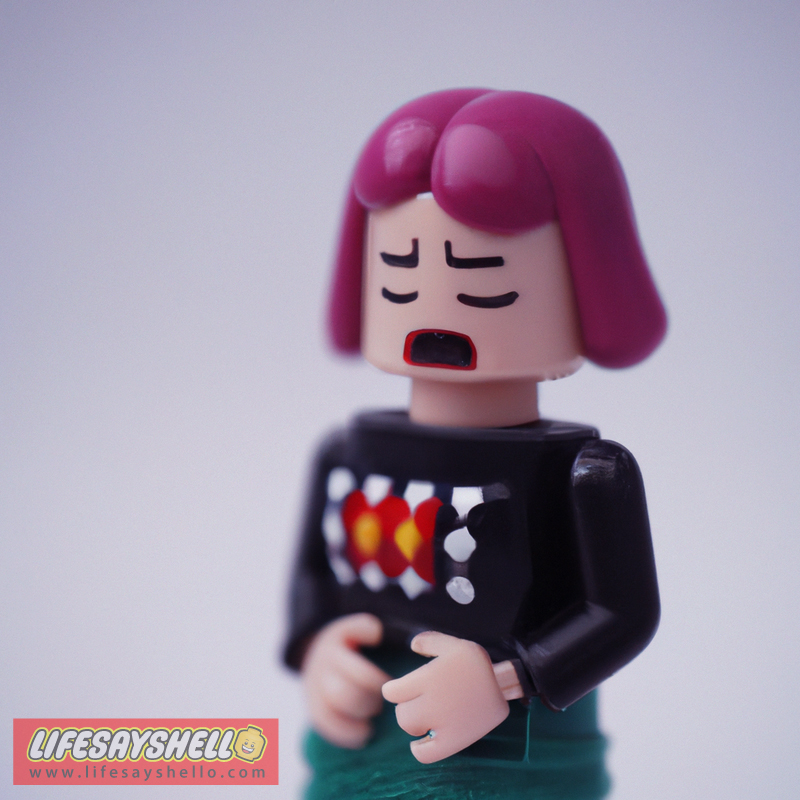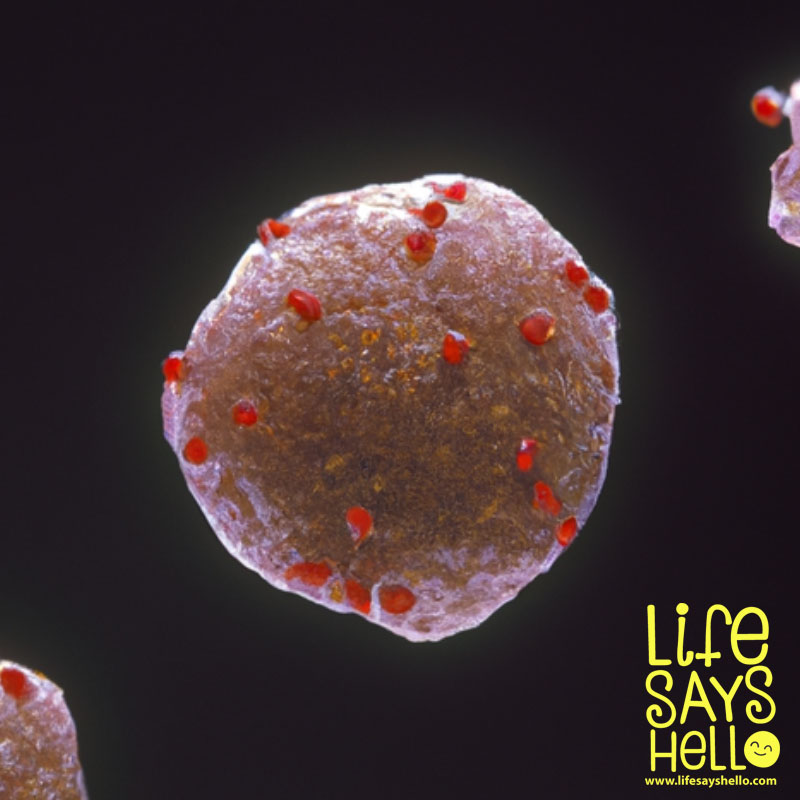Read the Signs: Understanding the Most Common Symptoms 1 Week Before Your Period

Guess what, ladies? It’s that time of the month again. Well, almost. The telltale signs of Aunt Flo's imminent visit are starting to pile up, and you're likely left cringing at the potential discomforts to come. Moods swing, chocolate beckons, and comfort clothes always seem like the right outfit choice.
And let’s not forget the physical symptoms that have us acting like private investigators, deducing whether or not danger - or rather, our period - is around the corner.
This is your go-to guide on symptoms that can crop up 1 week before your period and how you can better handle this unfailingly interesting stage of your menstrual cycle.
Symptoms Overview
1. Cramps
An oldie but a goodie, cramps are the unsolicited guests often marking the start of the pre-period party. They typically make their entrance 2 to 3 days before hands-on period care is required. You can think of these abdominal pains as the harbinger of what’s soon to wash ashore.
The uterus contracts to shed the inner lining when pregnancy hasn't kicked in. It's about your body doing spring cleaning, only once a month, every month. When the uterus contracts, it temporarily loses supply of oxygen, causing the tissues to release chemicals that trigger pain. Yes, all these just so the cycle can prepare for another potential pregnancy!
2. Breast Tenderness
Next in on the list is none other than breast tenderness, formally addressed as mastalgia. This unexpected tenderness is another pre-period phenomenon occurring anywhere between 5 days and 2 weeks before your full period slides into the picture. Boobs acting up? Maybe it's time to get the pads ready!
Ever wondered why your breasts suddenly feel sore and sensitive, evoking newfound sensations, and not in a good way? This burgeons from the swell in hormones, causing the breast to feel heavier and sensitive to touch. Your boobs are just trying to tell you they're gearing up for potential motherhood!
3. Bloating
Moving on, let’s talk about bloating, a pretty universal pre-period experience. It's that recurring feeling of puffiness that has us questioning, "Did my jeans shrink, or is it just my body playing tricks on me?" If more than 90% of us are having this conversation, it's a likely indicator of the menstrual cycle making its rounds.
If you've ever wondered why stepping on a scale a week before your period seems so daunting, here's why. The high levels of estrogen and progesterone right after ovulation cause fluid retention, leading to the bloated feeling that has us throwing judgmental glances at skinny jeans.
4. Headaches
Now comes the head-pounding, increasingly annoying ordeal of premenstrual headaches. These can be a big indicator that your period is approaching. Don't worry, your brain's not splitting; it's likely just your hormones having a not-so-quiet conversation.
The cocktail of hormones fluctuating in your body can throw your body's usual balance into a spin. The result? A throbbing headache that has you feeling like the Grinch. This can pair up with a wave of migraines for some, making it an even more unpleasant experience.
5. Mood Changes
Finally, let's delve into the emotional rollercoaster that precedes the period. A joy, isn't it? From a sudden outburst of tears to inexplicable frustrations, emotional ups and downs are often on the pre-period menu.
The dramatic fall in estrogen and progesterone levels triggers a release of chemicals in the brain that have a direct impact on mood. This could leave you feeling like you're on an emotional roller coaster, laughing at a moment and sobbing the next.
Causes of Symptoms
1. Hormonal Changes
The driving factor behind these pre-period predicaments is a relay race of hormonal fluctuations. As your body prepares for potential pregnancy, hormones like estrogen and progesterone pull some interesting tricks. If pregnancy doesn't come into play, dropping hormone levels kickstart your period, and alas, your mood doesn't necessarily agree with this.
2. Physical Changes
Physical changes in the body like an expanding uterus can also throw the usual equilibrium off balance. Add to that other changes, like water retention and tissue swelling, and you have a comprehensive account of the mess in progress.
3. Emotional Factors
Stress, anxiety, and other emotional factors also piggyback on this ride, creating an intricate symphony of symptoms that your body tunes to.
Managing Symptoms
Now that we've listed out potential symptoms and their causes, let's look at the weapons you can add to your arsenal to tackle this monthly quest.
1. Good Nutrition and Hydration
Keeping a balanced diet and staying well-hydrated can often help keep these symptoms at bay. Stock up on fruits, vegetables, and lean proteins while kicking processed food, caffeine, and alcohol to the curb.
2. Regular Exercise
Up next on our management tool list: Exercise! Regular workouts can help alleviate pain, ease moodiness, and fight off fatigue. Whether it's going for a run or doing some yoga, find some physical activity that your body vibes with.
4. Stress Management
Let's not forget stress management. Practice mindfulness, meditation, or other relaxation techniques to help keep the emotional rollercoaster at bay.
5. Over-the-Counter Remedies
And if these don't quite cut it? Over-the-counter remedies like pain relievers and non-steroidal anti-inflammatory drugs (NSAIDs) might be just what the doctor – or pharmacist – ordered.
Comprehensive Guide to Managing Symptoms
So much about understanding the drama unfolding inside one week before our period, right? But fret not; awareness is pivotal to mastering how your body works and harnessing this not-always-welcome cycle.
1. Filling Up on the Right Stuff
Eating right can be your secret weapon. Try including more whole foods and lean protein in your diet while minimizing sugar and processed foods. Also, hydration is paramount!
2. Working that Body
Exercise isn't just about maintaining physical health; it's also about emotional wellbeing. Regular physical activity can help balance hormonal fluctuations, improve mood, and decrease bloating and cramping. Did we mention the added benefit of looking hella good?
3. Calming the Mind
Incorporating mindfulness and relaxation practices into your routine could help manage mood swings and bust stress. Spend a few minutes each day practicing meditation, yoga, or deep breathing exercises. Find your oasis of calm in the storm.
4. Seeking Help When Needed
There's no shame in reaching out to a healthcare provider if the symptoms seem too much or if over-the-counter drugs aren't cutting it. After all, it's about your body, and you've got the right to feel good!
When to Seek Medical Help
In some cases, things might seem out of your realm, and you may experience severe or unusual symptoms. These can include intense pain, significant disruption in daily activities, or anything that strikes you as not-right. That's where the professionals step in. Don't hesitate to reach out to a healthcare professional to discuss these concerns.
Wrapping it Up
PMSing is real, so are the symptoms one week before your period, and so is the challenge that many of us women embrace monthly. Armed with the right information and understanding about our bodies, we can navigate through these symptoms. Remember, there's no one-size-fits-all when it comes to these symptoms, and the way we handle it varies from person to person.
The bottom line is, whatever is normal for you is what you should pay attention to. If these symptoms feel different or out of place, trust your gut, and don't hesitate to consult a healthcare provider. It’s all about listening to our bodies, understanding what it's trying to communicate, and responding with tender, loving care.
So, love yourself, care for your body, and remember - we're all in this together! Though our bodies might baffle us every so often, being the fantastic women we are, we handle it like a boss, period or not!




Comments